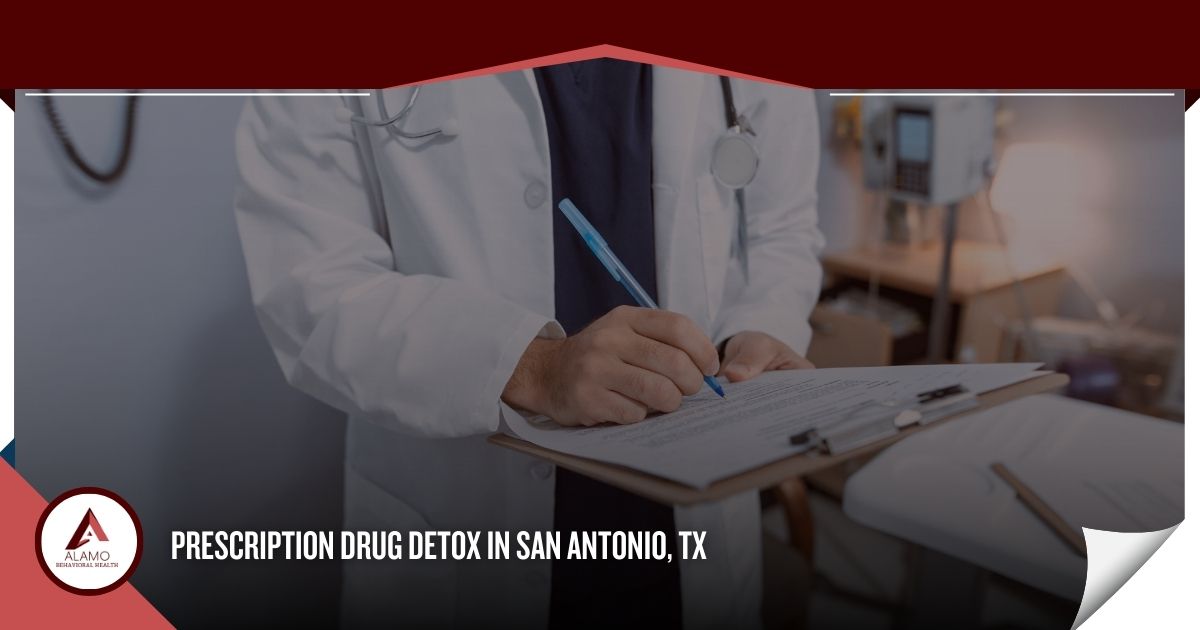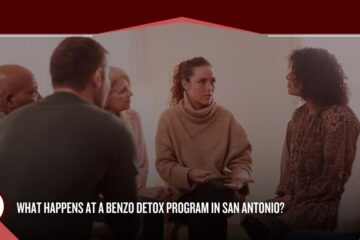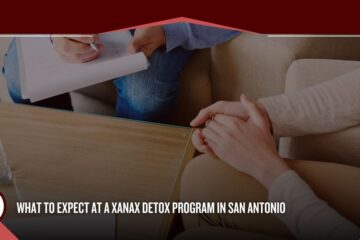Prescription Drug Detox Program in San Antonio, TX: Starting Your Recovery
Prescription drugs can be helpful to treat a range of physical and mental health conditions. That said, some of them are known to be habit-forming and addictive. For example, prescription drugs like opioids, benzodiazepines, and stimulants often lead to addiction when abused.
According to the National Institute on Drug Abuse (NIDA), 14.3 million people reported abusing prescription drugs in 2021. Even further, nearly 9 million people abused opioids, 5 million abused sedatives, and 4 million abused benzodiazepines.
When you abuse prescription drugs, you eventually develop a substance use disorder. Drug and alcohol addiction of any kind must be treated by a professional treatment center like inpatient rehab or outpatient treatment. However, before receiving addiction treatment, you need to undergo medical detox.
If you struggle with prescription drug addiction, it’s important to seek medically supervised detox. These programs will help you overcome withdrawal symptoms safely and comfortably. Prescription drug detox treatment programs in San Antonio use a combination of medications, supervision, and counseling to help you overcome the first hurdle in sobriety.
Understanding Prescription Drug Addiction
There are endless amounts of prescription drugs out there. Some of them are harmless, while others might lead to dependency and addiction. The main prescription drugs that people abuse include opioid pain relievers, stimulants, sedatives, and benzodiazepines.
Spotting an addiction to prescription drugs can be difficult, especially if they were given to you by a doctor. Thankfully, there are signs to be aware of that indicate you need help from an addiction treatment program.
The signs of prescription drug addiction include:
- Running out of prescriptions early
- Going to multiple doctors to receive more than one prescription
- Stealing pills from friends or family members
- Buying prescription drugs off of the street
- Having a hard time controlling how much prescription drugs you consume
- Using prescription drugs to experience a high rather than treat a condition
- Continuing to use prescription drugs despite experiencing adverse side effects
- Getting into risky situations when you abuse prescription drugs
- Experiencing urges and cravings to abuse prescription drugs
- Needing to increase the dose of a prescription drug to experience the desired effect
- Dealing with withdrawal symptoms when you stop using a prescription drug
If you experience withdrawal symptoms when you stop using a prescription drug, it’s time to seek help. Depending on the substance you are addicted to, withdrawal symptoms can be life-threatening. For example, benzodiazepine withdrawal can lead to seizures while opioid withdrawal can cause fatal dehydration.
Thankfully, detox centers can prevent your symptoms from becoming severe. Medical detox programs in San Antonio, Texas can help you overcome withdrawal with a combination of medications, medical monitoring, and counseling.
How Does Prescription Drug Detox in San Antonio, Texas Work?
The goal of prescription drug detox is to rid your body of the substance you are addicted to. Unfortunately, suddenly stopping the use of a drug will result in withdrawal symptoms. Keeping this in mind, medical detox programs offer medications to limit withdrawal and prevent cravings, keeping you focused on recovery.
During prescription drug detox in San Antonio, Texas, you can expect:
Intake and Assessment
The first step in medical detox is intake. The admissions counselors will gather information like your insurance coverage or payment plan before you get started with treatment. They might gather other important information like emergency contacts and medical release forms.
In addition to intake, you will undergo an initial assessment. Medical professionals will ask you questions about your physical and mental health as well as your history of prescription drug abuse. This information will be used to create an individualized treatment plan.
Your treatment plan will include information like how long you require detox, what type of medications you would benefit from, and whether you struggle with co-occurring disorders. Having an individualized detox plan will ensure that the services you receive are specific and relevant to your needs.
Medical Monitoring
Once your treatment plan is created, you will begin detox. Nurses will monitor your vital signs to ensure you are stable and ready to begin medications. They will also ask you about what symptoms you are currently experiencing and when your last dose of prescription drugs was.
Throughout detox, your vital signs will be monitored consistently. This allows medical staff to adjust your medication and treatment accordingly.
Medications
Once you are considered stable, you will begin medication to control your withdrawal symptoms. The withdrawal symptoms you experience are dependent on the type of prescription drug you are addicted to. While opioid withdrawal often feels like a severe flu, benzodiazepine withdrawal can lead to seizures.
Additionally, the type of medication you are given will depend on what type of prescription drug you are addicted to. For example, opioid addiction is treated using medications like Suboxone and methadone.
Over time, the dose of your medication will be tapered. As your withdrawal symptoms subside, your need for the withdrawal medication will lower. Eventually, you will completely come off of your medication when your symptoms are no longer affecting you.
Counseling
Detox treatment facilities offer counseling to their clients to ensure everyone remains psychologically stable. Withdrawal can be difficult to cope with, so mental health experts remain on standby to support you.
Additionally, if you have a dual diagnosis like anxiety or depression, you will receive treatment that helps you learn to manage your condition healthily. You might engage in behavioral therapies to learn healthy coping mechanisms.
Treatment Planning
Once you have overcome withdrawal, it’s time to start thinking about your next steps. Your doctor and therapist will help you come up with a treatment plan that involves a combination of inpatient and outpatient treatment programs.
It’s important to transition into an addiction treatment program after detox. While you have overcome the physical aspects of addiction, the psychological and behavioral aspects are just as important to treat. Drug and alcohol rehab will help you address the root causes of your addiction and teach you how to prevent a relapse.
Get Connected to a Prescription Drug Detox Center Near You
If you or a loved one suffers from prescription drug addiction, Alamo Behavioral Health is here to help. We offer our clients compassionate and evidence-based detox care to ensure they have the best shot at long-term recovery. We also offer drug rehab programs that you can transition into once you complete detox, offering a continuum of care.
Breaking free from substance dependency requires a comprehensive and multidimensional approach, with the medical detox Texas recovery centers playing a crucial role. It involves the use of medical interventions, under the guidance of healthcare professionals, to safely manage withdrawal symptoms and minimize the risks associated with the detoxification process. Alamo Behavioral Health aims to ensure a safe and comfortable detoxification experience with constant medical supervision and appropriate interventions.
Contact us today to learn more about our prescription drug detox center in San Antonio, Texas.




